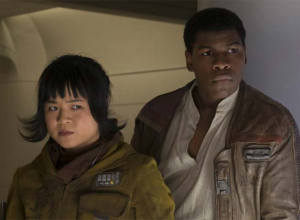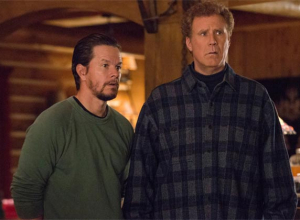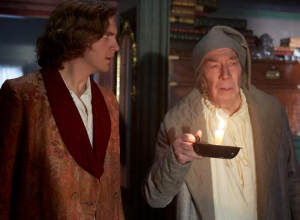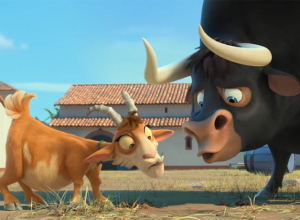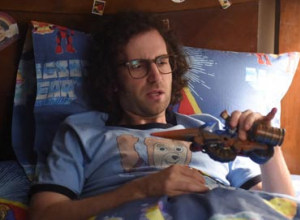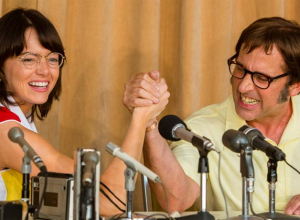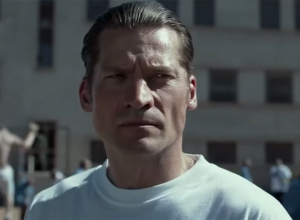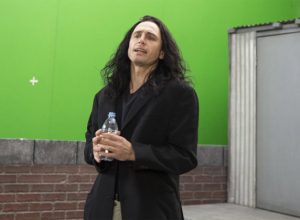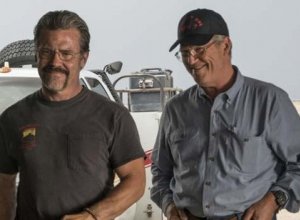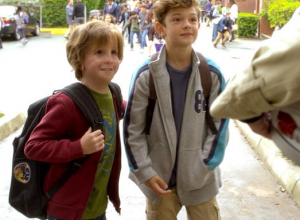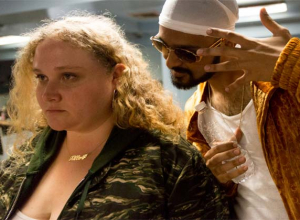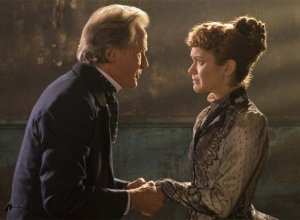Myra Breckinridge Review
By Mark Athitakis
The film is based on Gore Vidal's bestselling 1968 novel, which gave us Myra as a magnificently over-the-top symbol of changing sexual mores, greed, revenge, Hollywood, and how they all intersect. In the hands of director Michael Sarne, the story became a messy sex farce; Vidal stepped away from the project, and for good reason. In the book, Myra romanticizes the great movies of the 1930s, arguing, in fact, that it was the best decade ever for movies. This inspires Sarne to raid the 20th Century Fox vault and cram in seemingly dozens of clips from Laurel & Hardy and Shirley Temple films, sometimes ironically, but mostly sitting there like a bad joke told at a dinner party. (It may be that Myra's sole usefulness is that it inspired a similar idea in the HBO TV series Dream On, actually done well.)
There is, however, a vague thread of plot. Myra (Racquel Welch) is formerly Myron (Rex Reed), transformed thanks to a sex-change operation in Europe and arriving in California with a man-hating attitude: "I am Myra Breckinridge whom no man will ever possess," she proclaims in voiceover, before meeting with her wealthy uncle Buck Loner (John Huston), who runs an acting school. She tells him he's Myron's widow and demands a share of his estate. Loner refuses, which, alas, allows the story to continue.
Huston is the saddest sight in the film, looking comically cantankerous on massage tables or wearing a ludicrous cowboy get-up. But he's only one of many people mouthing silliness. Somebody actually says, "You don't want flammable tits, now, do you?" at one point, and Mae West attempts to vamp around a variety of virile men (including a young Tom Selleck) to no humorous effect; if West was at one time possessed of comic timing, you wouldn't know it here. The sole entertainment, is the strangely comic-erotic tone that shows up whenever Myra interacts with Rusty, an eager but dumb acting student (Roger Herren), and a sexily soft-lit Mary Ann (Farrah Fawcett). The climax involves a bit of sexual transgression amongst that trio, but by the time the film's 90-some minutes are up, it's more dull than erotic.
Myra marks Hollywood's exciting transition into the '70s, led by Midnight Cowboy, Taxi Driver, and Joe, and defenders of it in recent years have argued that it belongs in that league; Myra, they say, was unfairly slammed upon its release because critics simply couldn't groove to its hip swing. History disputes that logic. A week after Myra hit theaters, Russ Meyer's classic Beyond the Valley of the Dolls arrived, and fans for years since have grasped the pleasures of Meyer's humor, eroticism, and dark hedonism. Here, we're supposed to read lots of messages into the film's penultimate scene between Myra and Rusty, where she deploys a dildo to "educate you - you and the rest of America!" The film and its purported message are just like the monster between Welch's legs: A big fat fake.
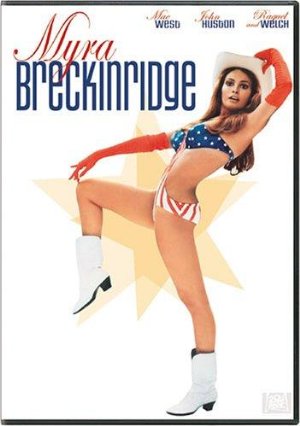
Facts and Figures
Run time: 94 mins
In Theaters: Wednesday 24th June 1970
Box Office Worldwide: $3M
Budget: $5M
Distributed by: CBS/Fox
Production compaines: Twentieth Century Fox Film Corporation
Reviews
Contactmusic.com: 1.5 / 5
Rotten Tomatoes: 29%
Fresh: 6 Rotten: 15
IMDB: 4.2 / 10
Cast & Crew
Director: Michael Sarne
Producer: Robert Fryer, David Giler
Screenwriter: David Giler, Michael Sarne
Starring: Raquel Welch as Myra Breckinridge, John Huston as Buck Loner, Farrah Fawcett as Mary Ann Pringle, Mae West as Leticia Van Allen
Also starring: Rex Reed, Robert Fryer, David Giler, Michael Sarne
